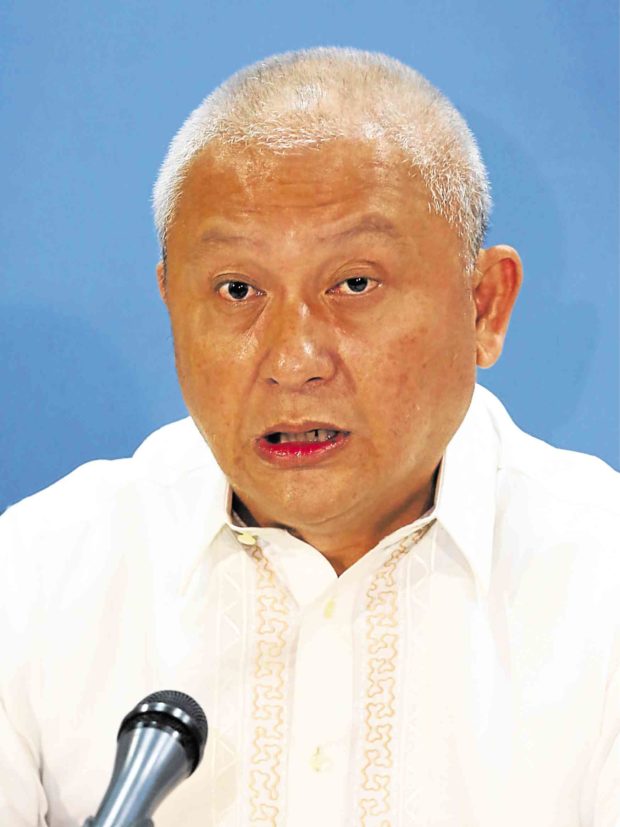House to BOC: Explain no-show in Tadeco probe

Rep. Johnny Pimentel
The House of Representatives would direct the Bureau of Customs (BOC) to explain why it snubbed for the third time its inquiry into the controversy hounding the Tagum Agricultural Development Corp. (Tadeco).
The good government and justice committees approved on Wednesday the issuance of a show-cause order directing the agency to explain why it should not be cited in contempt.
“For the past three hearings, we have invited them, but they have been ignoring our letters,” Surigao del Sur Rep. Johnny Pimentel, good government committee chair, said during the hearing.
Lawmakers wanted to know from the BOC the volume of Tadeco’s exports, as they questioned its joint venture agreement (JVA) with the Bureau of Corrections (BuCor) for the use of Davao Penal Colony land. The JVA was first entered into in 1969 and extended for another 25 years in 2003.
Speaker Pantaleon Alvarez, whose graft complaint against Davao del Norte Rep. Antonio Floirendo Jr. triggered the inquiry, also directed the Davao Region police to secure public roads in the area and dismantle all gates.
Election manipulation?
During the hearing, Alvarez accused Tadeco of manipulating the election in Panabo City by “cordoning off” Barangay A.O. Floirendo, a village in the sprawling banana plantation, supposedly to stop candidates, whom the company did not support, from campaigning there.
Land survey
“That barangay is the determinant factor in every election. They cordon it off, so the election would always result in the victory of the mayor they support. The [rival] candidates could not enter,” he said.
Deputy Majority Leader Juan Pablo Bondoc proposed another land survey to determine the true area covered by the agreement with BuCor and identify public roads, after former municipal surveyor Ruben Tacugue claimed restrictions on road use hampered surveys in the area.
Tadeco president Alexander Valoria agreed to allow the survey even on private lands covered by the plantation.
He maintained that “all public roads traversing Tadeco are open,” although he admitted that checkpoints were put in place due to the security issues and the presence of protesters in the area. Security checks, he said, were also meant to prevent the spread of plant diseases.
Equal opportunities
In a separate statement, Anthony Sasin, Tadeco board chair, denied Alvarez’s allegation of election manipulation.
“All legitimate political organizations, parties, and candidates are provided equal opportunities to conduct sorties and activities without hampering the production and commercial activities of the company,” he said.
Floirendo, President Duterte’s top campaign financier, is a shareholder in Tadeco, whose stocks were mostly owned by his family’s holding company, Anflo Management and Investment Corp.
Tadeco’s dealings with BuCor became controversial after Alvarez filed a graft complaint in the Office of the Ombudsman in March last year. The Ombudsman, in September, found probable cause to indict Floirendo.
The Commission on Audit, in an April 25 audit observation memorandum, said the Tadeco agreement was unconstitutional for exceeding the 1,000-hectare ceiling set by the 1973 and 1987 Constitutions, and the 1,024-ha cap by the 1935 charter, on the lease of land to private corporations.